This article was medically reviewed by Lacy Windham, MD. Lacy Windham, MD, is a Board-Certified Obstetrician & Gynecologist in Cleveland, Tennessee. Dr. Windham attended medical school at the University of Tennessee Health Science Center in Memphis. Her residency was completed at Eastern Virginia Medical School in Norfolk, Virginia. She was the recipient of multiple awards during her residency training, including Most Outstanding Resident in Maternal Fetal Medicine, Most Outstanding Resident in Oncology, Most Outstanding Resident Overall, and Special Award in Minimally Invasive Surgery.
There are 17 references cited in this article, which can be found at the bottom of the page.
This article has been viewed 251,457 times.
If you’ve had unprotected sex or are worried that your contraceptive method failed, you may be concerned about an unwanted pregnancy. Emergency contraception, including the “morning after” pill, can prevent conception and give you peace of mind. Buy a morning after pill at a pharmacy or health clinic, or get a prescription from your doctor.[1]
Steps
Getting the Pills
-
1Visit your local pharmacy or grocery store. You can purchase over the counter morning after pills at most pharmacies and some grocery or large retail stores. Most morning after pills, if you're paying full-price, cost around $35-50.
- Morning after pills will likely be among other family planning methods such as condoms.[2]
- If you don't see the morning after pill on the shelves, visit the pharmaceuticals counter and ask there.
- There may be generic and brand name options. Both are equally effective and you can decide based on budget and if you’re sensitive to any of the active ingredients.
- Be aware that some stores may not sell the morning after pill because of the company’s moral code. Consider calling ahead of time if you have reason to suspect the store's owners might be opposed to family planning.
-
2Go to a sexual health clinic or walk-in clinic. You may be able to get the morning after pill from your nearest sexual health clinic or walk-in health center.[3] If you're within business hours, this may be easier and more discreet than a retail outlet.
- The morning after pill may not have any cost, or a clinic may price it on a sliding scale for those that can't afford full price.[4] You will be asked about your income and insurance to determine your fee.
- If you live in the United States, see if there's a Planned Parenthood Health Center near you: https://www.plannedparenthood.org/health-center
- Most universities have a health center that may offer emergency contraception. If you are not sure how or when it is available, ask a member of staff or talk to the nurse.
Advertisement -
3Get a prescription. Your doctor can prescribe you emergency contraception. If you’re unsure of your options or have any questions about taking the morning after pill, schedule an appointment with your doctor. Tell the receptionist that the matter is urgent so that you can see the doctor as soon as possible.
- You will have to explain the situation to your doctor and she may then prescribe emergency contraception for you. She may also suggest using a regular form of birth control.
- The most common prescription pill is Plan B.
- NorLevo is not as effective in women with a BMI over 35; the case may be the same with other brands of the morning after pill.[5]
- Bear in mind that you should get the pill as soon as possible, as the effectiveness decreases over time.
Using Contraceptive Pills
-
1Take emergency contraception as soon as possible. If you’ve had unprotected sex and are concerned that you could get pregnant, take the morning after pill, which is also called emergency contraception, as soon as you can. In most cases, you can take the morning after pill up to five days following unprotected sex.[6]
- Be aware that many states require women under the age of 17 to get a prescription for morning after pills.[7]
- You can take the pill anytime during your menstrual cycle.
- The morning after pill is a safe and effective way to prevent pregnancy. However, you shouldn’t use this as a regular form of birth control.
-
2Talk to your pharmacist about indications. While everyone can use over the counter emergency contraception, it may not be as effective for every woman and some may be allergic to it. Make sure to read and understand any indications or contraindications that come along with emergency contraception.[8]
- The morning after pill may be less effective for women with a Body Mass Index (BMI) over 25.
- Certain medications such as barbiturates, or other supplements such as St. John’s Wort may decrease the effectiveness of the morning after pill.
- If you are allergic to any component of the morning after pill, it may be less effective.
-
3Watch for side effects. If you use any kind of morning after pill, you may experience some side effects. These usually subside after a few days.[9]
- You may experience nausea or vomiting after taking the morning after pill.
- You may feel tired, dizzy, or have a headache after taking the morning after pill.
- You may have breast tenderness, and lower abdominal pain or cramping after taking the morning after pill.
- You may experience bleeding between periods or heavier menstrual cramps after taking the morning after pill.
- Contact your doctor immediately if you experience bleeding or spotting that lasts longer than a week or if you have severe abdominal pain 3-5 weeks after taking the morning after pill. This can help rule out an ectopic pregnancy.
-
4Repeat the dosage if you throw up. One of the most common side effects of using emergency contraception is nausea. If you vomit within an hour of taking the pills, repeat the dosage.[10]
- Don’t repeat the entire process, just the dosage you threw up.
- You may need to take an anti-nausea medication to help your stomach.
-
5Avoid using multiple forms of emergency contraception. Only use one form of emergency contraception. Not only is using two forms of emergency contraception not more effective at preventing pregnancy, but the different types of morning after pill may actually make the other less effective.
- You’re much more likely to have nausea, vomiting, and other side effects from using multiple forms of emergency contraception.[11]
-
6Use backup contraception. If you’ve taken the morning after pill and don’t have a regular form of birth control, use a backup form of contraception. This can help prevent unwanted pregnancy.[12]
- Consider using condoms as your backup form of contraception.
- Use backup contraception for 14 days after taking the morning after pill.
Using Regular Birth Control Pills for Emergency Contraception
-
1Determine your dosage. If you take regular birth control pills, and have simply missed a dose, you may be able to increase your dose as a form of emergency contraception. However, you should talk to your doctor or a pharmacist about the number of pills you should take.[13]
- You can also call 1-800-PLAN to discuss your options with a Planned Parenthood representative.
- Depending on the kind of oral contraceptive, one dose may be 4 or 5 pills.
-
2Take two doses. After establishing how many pills you need, take two doses within 12 hours of one another. This is considered a safe and effective pregnancy prevention method.[14]
- Take your first dose up to 5 days or up to 120 hours after unprotected sex.
- Take the second dose 12 hours after the first dose. An hour more or less won't make a difference.
-
3Don’t take extra pills. You may be tempted to take more than 4-5 pills to make sure it works, but this will not actually reduce your risk. The only thing it will do is raise your chances of an upset stomach.[15]
- If you experience severe stomach pain, seek medical attention.
Starting Regular Birth Control
-
1Consider your family wishes and lifestyle. When you decide to use birth control, there are many factors you should consider such as if and when you want children, if you want to take pills or not worry about taking daily medication, and your lifestyle, including if you travel frequently. Thinking about these questions can help you determine the most appropriate form of birth control for you.[16]
- For example, if you are in a long term relationship and want to wait a few years to have children, you might opt for a long term birth control method such as an intrauterine device (IUD).
- If you have multiple partners, you may opt for birth control pills and condoms to protect from pregnancy and sexually transmitted diseases.
- Consider questions such as “do I want to plan every time I have sex?,” “do I want to remember to take a pill every day?,” “do I want to end my fertility permanently?”.[17]
- You’ll also want to think about your health. For example, if you suffer from migraines, birth control pills may not be a good choice for you.
-
2Check out barrier methods. You can choose barrier methods that are put on or inserted right before sex including male and female condoms, a diaphragm, a cervical cap, and spermicide.[18]
- If used properly, these methods can help protect against pregnancy, but you may want to use a secondary method to help ensure that you don’t get pregnant. For example, if you’re using condoms, which have a failure rate of 2-18%, you may want to also use a spermicide.
- The advantage to barrier methods is that they also protect against STIs.
-
3Try hormonal birth control. Hormonal birth control, which has a low failure rate of less than 1% to 9%, is a good option if you want to avoid pregnancy and are in a long-term relationship. The different types of hormonal birth control are the Pill, a patch, or a vaginal ring.[19] Birth control pills can have the added benefit that they can help regulate your menstrual cycle.
-
4Consider an IUD or implant. You can choose a long-acting reversible contraception (LARC) method such as an IUD, hormonal shots, or a contraceptive implant if you want to wait to have children. It can take some time to return to fertility after using these methods, but they will not affect your ability to conceive in the long-term.[20]
-
5Look into sterilization if you don't want children. Sterilization is a birth control option if you are sure you never want children. Vasectomies and tubal ligations are generally irreversible procedures and must be seriously considered before making a final decision to go through with them.[21]
-
6Be aware of potential risks of different birth control methods. Every birth control method comes with potential risks, including unwanted pregnancy. Being aware of potential risks and side effects of the different birth control methods can help you choose the best method for you.
- Hormonal birth control, such as pills, patches, and vaginal rings may increase your blood pressure and affect your cholesterol.[22]
- Barrier methods such as condoms, spermicides, and caps can cause allergic reactions and may increase your risk for urinary tract infections or STDs.
- The risks for long-acting reversible contraception (LARC) methods include perforation of the uterus, increased risk of pelvic inflammatory disease and ectopic pregnancy, and pain and heavy menstrual bleeding.
Expert Q&A
-
QuestionHow long after unprotected sex can you take emergency contraception?
 Carrie Noriega, MDDr. Noriega is a Board Certified Obstetrician & Gynecologist and medical writer in Colorado. She specializes in women’s health, rheumatology, pulmonology, infectious disease, and gastroenterology. She received her MD from the Creighton School of Medicine in Omaha, Nebraska and completed her residency at the University of Missouri - Kansas City in 2005.
Carrie Noriega, MDDr. Noriega is a Board Certified Obstetrician & Gynecologist and medical writer in Colorado. She specializes in women’s health, rheumatology, pulmonology, infectious disease, and gastroenterology. She received her MD from the Creighton School of Medicine in Omaha, Nebraska and completed her residency at the University of Missouri - Kansas City in 2005.
Board Certified Obstetrician & Gynecologist The sooner you take the morning after pill, the more effective it is at preventing pregnancy. Most need to be used within 72 hours; however, a few can be used up to five days after having unprotected sex. The article discusses when each type needs to be taken.
The sooner you take the morning after pill, the more effective it is at preventing pregnancy. Most need to be used within 72 hours; however, a few can be used up to five days after having unprotected sex. The article discusses when each type needs to be taken.
Warnings
- Don't use the morning after pill as a regular method of contraception. It's not a very reliable form of contraceptive, it's only about 90% effective, compared to 99% if you used a condom, or 98% if you're taking the contraceptive pill.⧼thumbs_response⧽
- The morning after pill does not protect against STDs.⧼thumbs_response⧽
References
- ↑ http://www.ncsl.org/research/health/emergency-contraception-state-laws.aspx
- ↑ https://www.acog.org/womens-health/faqs/emergency-contraception
- ↑ https://www.acog.org/womens-health/faqs/emergency-contraception
- ↑ https://www.acog.org/womens-health/faqs/emergency-contraception
- ↑ http://www.plannedparenthood.org/learn/morning-after-pill-emergency-contraception
- ↑ http://www.plannedparenthood.org/learn/morning-after-pill-emergency-contraception
- ↑ http://www.ncsl.org/research/health/emergency-contraception-state-laws.aspx
- ↑ http://www.plannedparenthood.org/learn/morning-after-pill-emergency-contraception
- ↑ https://patient.info/news-and-features/what-to-expect-after-you-take-the-morning-after-pill
- ↑ https://www.nhs.uk/conditions/contraception/emergency-contraception/
- ↑ https://www.nhs.uk/conditions/contraception/emergency-contraception/
- ↑ http://www.plannedparenthood.org/learn/morning-after-pill-emergency-contraception
- ↑ https://www.nhs.uk/conditions/contraception/miss-combined-pill/
- ↑ https://www.uptodate.com/contents/image?imageKey=PI%2F74604
- ↑ https://www.bedsider.org/features/88-the-yuzpe-method-effective-emergency-contraception-dating-back-to-the-70s
- ↑ http://www.mayoclinic.org/healthy-lifestyle/birth-control/basics/birth-control-basics/hlv-20049454
- ↑ http://www.mayoclinic.org/healthy-lifestyle/birth-control/basics/birth-control-basics/hlv-20049454
- ↑ https://myhealth.alberta.ca/Health/aftercareinformation/pages/conditions.aspx?hwid=uf9648
- ↑ http://www.acog.org/Patients/FAQs/Combined-Hormonal-Birth-Control-Pill-Patch-and-Ring
- ↑ http://www.mayoclinic.org/healthy-lifestyle/birth-control/basics/seo/hlv-20049454
- ↑ https://www.acog.org/womens-health/faqs/sterilization-for-women-and-men
- ↑ http://www.mayoclinic.org/healthy-lifestyle/birth-control/in-depth/birth-control-pill/art-20045136?pg=2
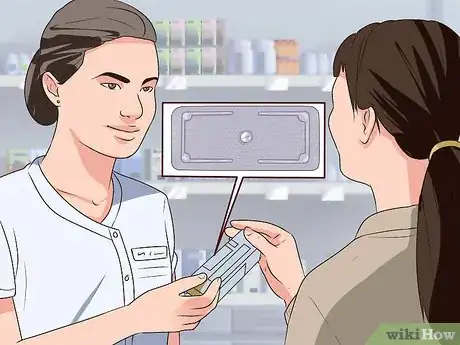


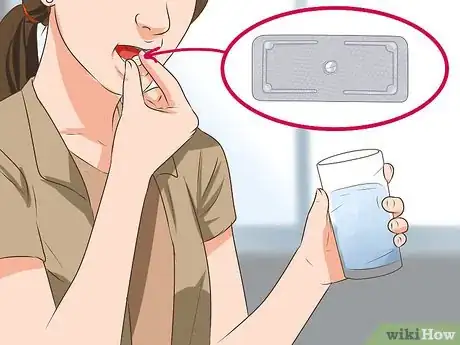

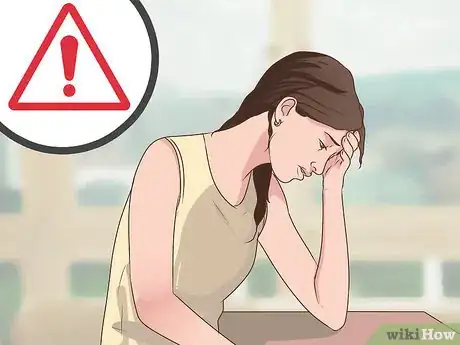
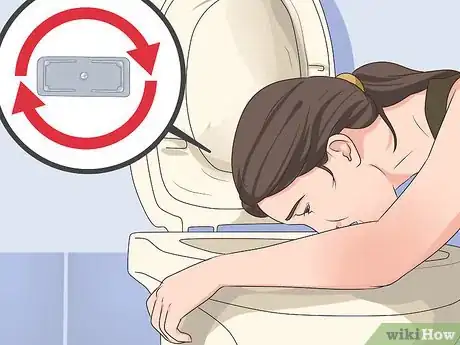
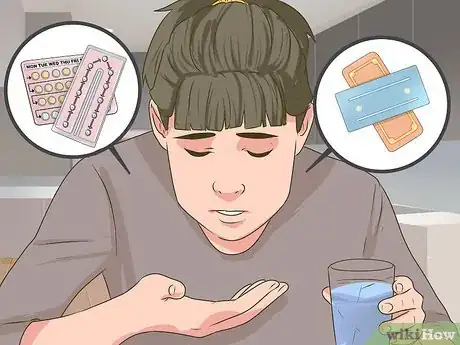
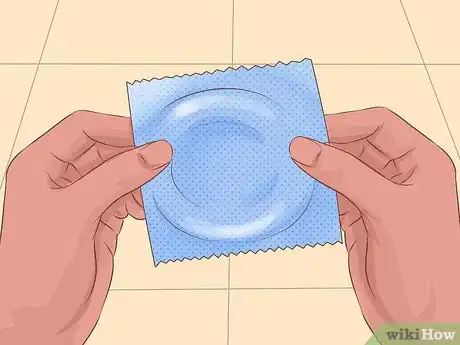

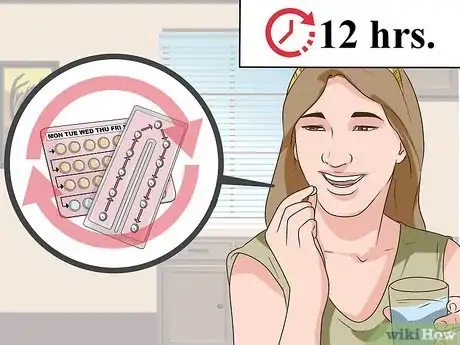


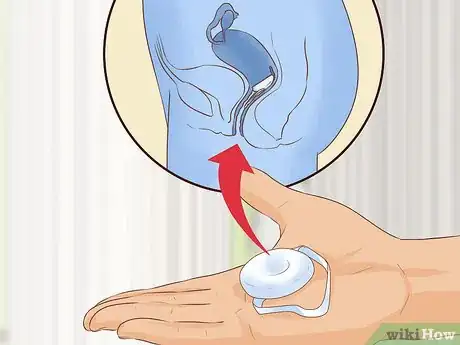
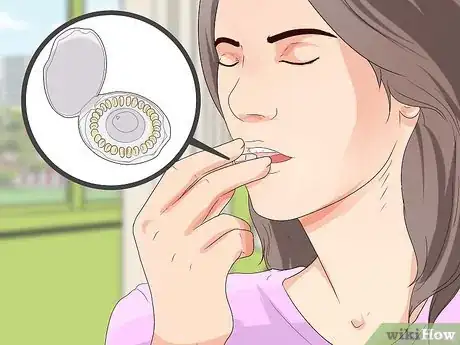
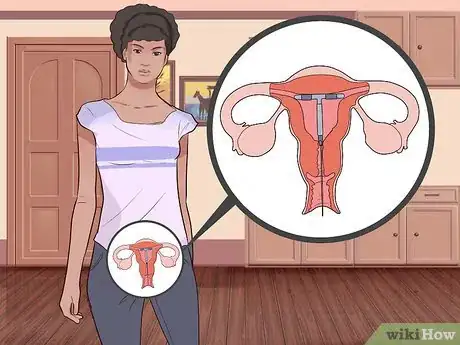
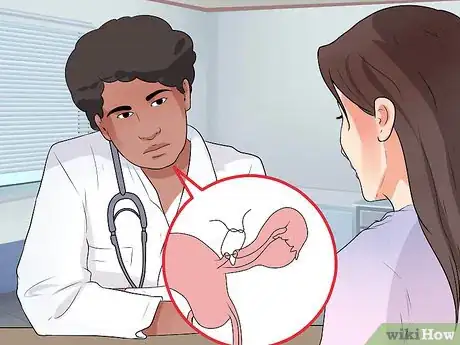








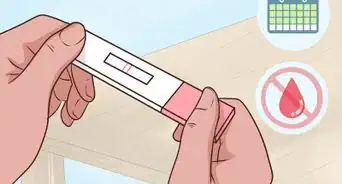

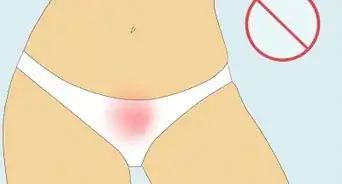


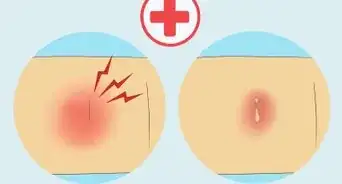















































Medical Disclaimer
The content of this article is not intended to be a substitute for professional medical advice, examination, diagnosis, or treatment. You should always contact your doctor or other qualified healthcare professional before starting, changing, or stopping any kind of health treatment.
Read More...